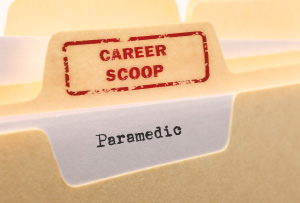In a nutshell what do you do?
Assist sick, injured or trapped people who are often helpless. This may be from accident, illness or self-induced situations. Every day is different but ultimately you respond, treat, stabilise and transport a person to a facility for their further treatment.
This is a vital link as how you deal to the situation ultimately decides what outcome the specialist at the facilities can do when you present the patient to them.
Why did you decide to become a Paramedic?
When I was leaving school the thought of the excitement around high speed response and getting to a scene where each event would be different while at the same time helping people that were injured or ill.
What path did you take into it?
I was interviewed by a selection panel to ensure that I was the right character for the role and they checked basic criteria (such as mathematics and science). Once accepted into the study program, I then attended lectures during the day and at the same time was rostered on to buddy a trained crew on the road.
As my training progressed I was allowed to rotate through the different units; ambulance crew, then onto rapid response vehicles, then onto Rescue units… All through your working career you continuously train to enhance your knowledge and gain further levels.
What, in your opinion, is the best bit of being a Paramedic?
The excitement of high speed response to scenes of chaos. Getting these scenes under control and recovering people and ultimately delivering them in a stable condition to a hospital.
Every job has its downsides. What do you think are the worst bits?
The loss of life, particularly children. This has to be the worst part. This is closely followed by the boring and often over looked patient transfer side of the job when you may have to transport someone for hours by road, while having to deal with uncontrolled bowel movements and vomiting!
Is it what you expected when you first started out – and what’s different?
The role was pretty much what I expected. This is partially due to the well-covered introduction prior to starting the career. What I was not prepared for was the emotional strain and the lack of sympathy or support when things turn bad.
What do the public least understand – or mistake – about what you do?
We are not miracle-workers, nor bullet proof! We also have to ensure we are safe prior to rushing into a scene. The public also do not understand that standing around looking like they are helping is actually causing more of an issue and they should stay well clear unless requested to assist.
The public also often view paramedics as “Civil Servants” and this view often leads to them regarding you as a glorified driver.
What kind of people tend to do well?
Disciplined people, with strong minds and willpower. People who are studious and keen for continual learning, as well as determination to succeed.
This is a role that you cannot put a job off to the side for another day because is becoming too hard; you have to see the task out, whatever the outcome.
Finally, any advice you’d offer to people looking to get into this line of work?
Ensure that you are aware that although the majority of your days have a positive outcome, you will experience people suffering pain or tragedy. Ensure you have a good network of family and friends who will support you on the days where things have not gone to plan.
Without a support structure, depression will affect you. You will need to speak to people and not bottle your emotions and feelings up.




